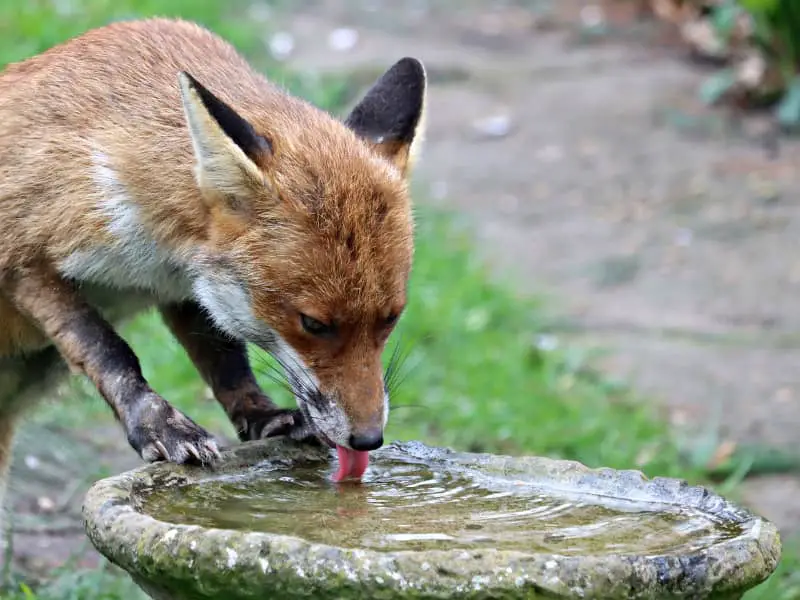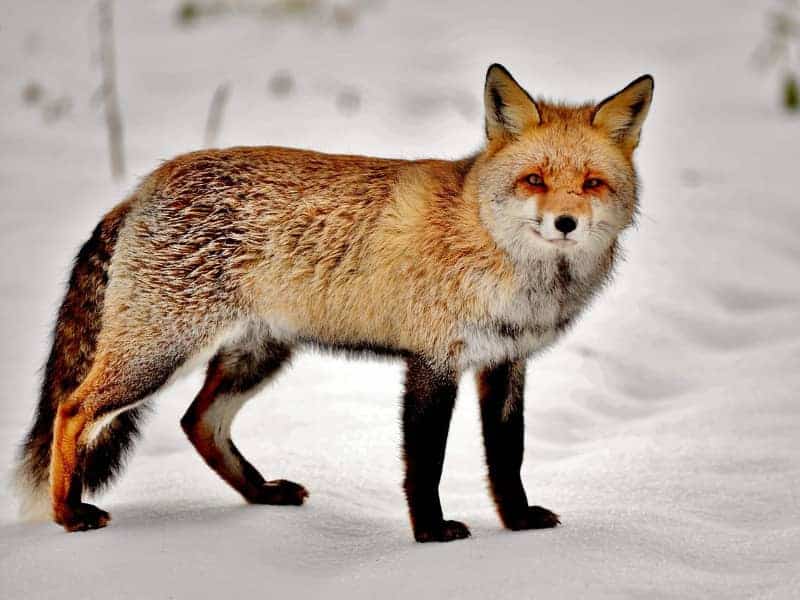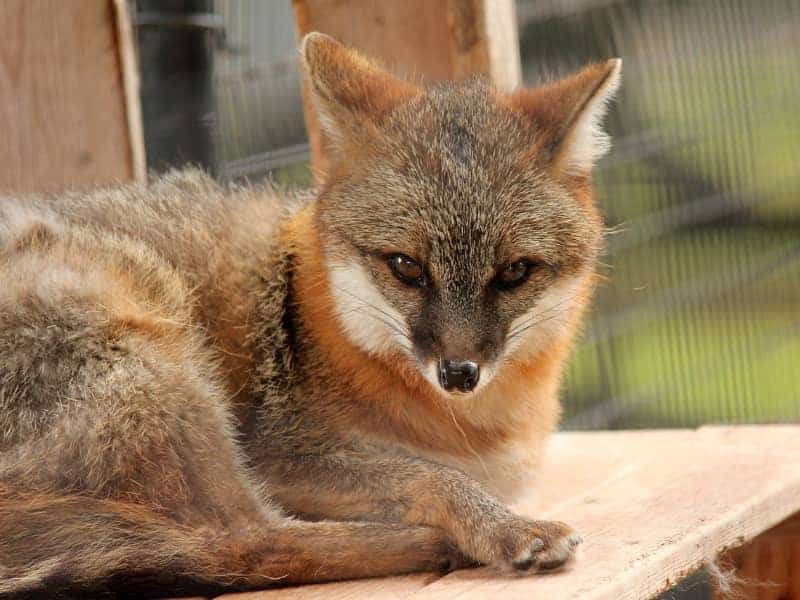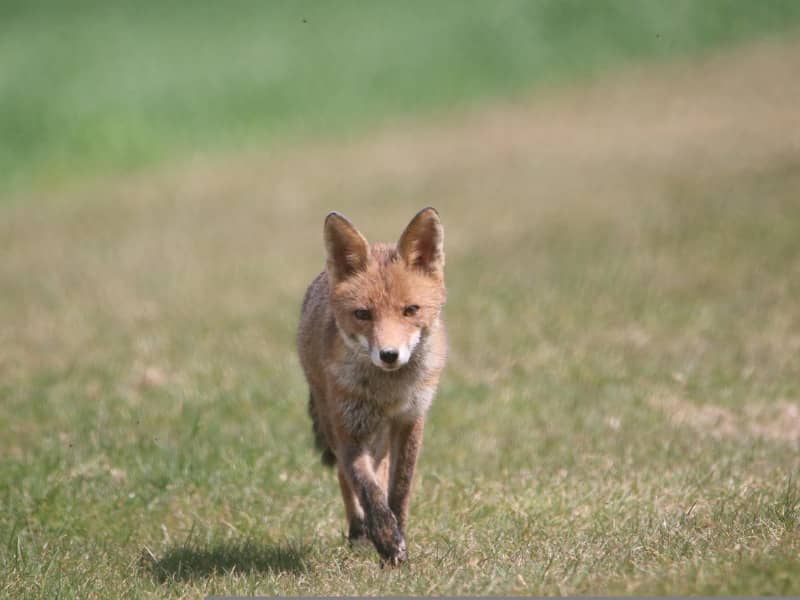
Fox in garden
If you discover a fox in your garden for the first time, you will wonder what to do. In no case you should ignore your visit and you should not try to chase away the fox alone. In our article about foxes in the garden, you will learn how it is possible to chase away a fox and whether this is necessary at all. We also inform you why the fox comes to your garden in the first place.
Fox in the garden, dangerous or now everyday life?
As a rule, foxes are not dangerous. However, you must never forget that the fox in your garden is still a wild animal. Therefore, you should meet the animal with respect and a sufficient distance. The Fox is not an aggressive animal and has lost the shyness to the two legs due to the proximity to humans and.
Due to the abundant food supply that he finds in residential areas, he is also regularly sighted there. The more often a fox has contact with humans, the less afraid it is of them and the more trusting it becomes. This manifests itself in the fact that he stays longer and also the distance between man and fox is reduced. Nevertheless, avoid direct contact with these animals.
Because one thing is certain, the fox can bite hard and can cause injuries to you and also to your pets. Cats instinctively avoid foxes, because they know how dangerous a fox can be for them. Especially when the animals have offspring, they become active and attack other animals such as cats or dogs to protect their offspring.
If you have a sufficiently large garden and the fox does not visit you only occasionally to find something edible, then it is not necessary to expel the fox. However, if the fox feels at home in the garden and is a permanent guest, then you should think about how you can drive the fox away.
Fox in the garden, so you can drive him away
If you regularly have a fox in your garden and it can no longer be chased away, then you should inform the wildlife assistance. If there is no wildlife help in your area, then it is also possible to inform the hunting authority or the police. Both authorities will take further measures to keep the uninvited guest away from your property.
However, there are also things you should consider for yourself, so that no fox visits your garden regularly. This includes not having an open compost pile in your garden. An alternative would be a closed composter or a drum composter. You should also not leave food scraps on your terrace.
This includes that your grill is thoroughly cleaned after grilling, because the scent of your grill smells the fox over hundreds of meters away. Likewise, you should not store or leave any animal food in your garden. This includes the food bowls of your dog or cat. Should there still be food remains only sticking to it, this is an invitation for the fox.
If you have rabbits or other free-roaming animals in your garden that are on the fox's menu, you should keep them in enclosures that are an obstacle for the fox. A fox finds it exciting when it can sneak around a rabbit enclosure in your garden, even if it does not enter the enclosure.
So that a fox does not want to enter your garden, there are special sprays that smell of human sweat. However, often these sprays do not help and the fox simply ignores them. This is because the more often a fox visits the gardens, the more it gets used to the smells of humans. What foxes definitely do not like is bright light. Here you can with a spotlight and a motion detector, drive away the fox.
Why does the fox come to us?
Foxes are so-called culture followers. This means that the fox stays near people, because here he can easily get food. The fox is an omnivore and therefore it does not matter to him whether he eats rats, mice or people's garbage. We humans are not innocent in this development, as we leave the fox less and less space to live.
Where there used to be forest and meadow, there are now our houses and the fox therefore uses these opportunities to take advantage of our presence. Partly he is also forced to visit our gardens and parks, because outside he can no longer find enough food to feed himself. Often there is also no shelter and if he finds it in a residential area, he accepts it.
It should not be forgotten that foxes are also comfortable. After all, why spend time hunting, when the table is already set in the garden of man. There you will often find everything they need to live. Sometimes with more, sometimes will be less effort. So it regularly happens that foxes knock over garbage cans to look for food in them.
The fox lives in your garden, what to do?
If your garden is big enough and you don't have any animals in your garden that are endangered by the fox, then you don't necessarily have to do anything. The reason why the fox moved in with you could be related to the fact that it regularly found something to eat in your garden. However, there are other simple and plausible reasons.
This includes the fact that in your garden was simply a good place, such as under your garden shed. Creating a foxhole there is easy for the fox. Within a few days he has created it and can move in. Over time, this foxhole will continue to grow and new exits will be added.
Especially when the doe (the female fox) is pregnant, she makes new burrows to be near the food. In the months from April to July the young foxes are raised in these burrows. During this period, you should in no case drive away the fox. Otherwise it is possible that the young foxes will be left alone and die.
Rather enjoy the unusual picture in your garden and watch the foxes playing as they are raised by their mother. If this happens in your garden, you are welcome to contact the nearest wildlife help center, which will give you more tips on how best to live with the foxes.
The fox, danger of diseases?
Like any living creature, the fox can also transmit diseases. The best known are rabies and fox tapeworm. But right at the beginning of this section we would like to point out that an illness from these two diseases is extremely unlikely. For one thing, Germany has been considered rabies-free since 2008. Therefore, this virus should no longer play a role in us humans.
Certainly there are still individual cases, but fortunately we no longer have to be afraid of it. The fox tapeworm is also often seen as exaggeratedly bad and people are unnecessarily afraid of it. You can easily protect yourself from fox tapeworm by following some simple rules.
- Always wash your hands after gardening.
- Always wash fruits and vegetables thoroughly before eating.
- Pets must be dewormed regularly.
- Remove and dispose of fox droppings in the garden with a shovel and gloves so that no other animal can come into contact with them. Then pour hot water over the spot to kill worms and larvae.
A dead fox in the garden
If you discover a dead fox in your garden, you must inform the hunter in charge. If you do not know who is responsible for your district, you can contact the police or the district office and report the discovery. They will then inform the hunter and he will look for the fox in the garden.
This involves checking the fox and possibly examining it to see if it had any contagious diseases and why it died.
Author

-
Garden animal - A life with nature
Welcome to my animal blog! My name is Dirk and I am happy to take you on my journey through the fascinating world of animals and gardening.
Born 54 years ago, I have had an insatiable curiosity for the animal world around me since childhood. Although I have moved professionally in other industries, my true passion has always been animals and nature. It is remarkable how a small garden has become such an important part of my life.
Many of my fondest memories are associated with the animals that share our home. Whether it's the curious squirrels that scurry across the trees in the morning, the colorful variety of birds that visit our feeders, or the busy bees and butterflies that pollinate our flowers, every moment with them is invaluable to me.
This blog is my contribution to share my experiences, discoveries and insights with like-minded people. Here I will share stories of unforgettable encounters with animals, give tips on gardening and creating wildlife-friendly habitats, and take you on my journeys through nature.
Thank you so much for being here!
Cordial,
Dirk aka garden animal
Last posts
- 27. February 2024PetsVeganes Hundefutter – Grün und Gesund?
- 18. January 2024ChickensOregano für Hühner
- November 27, 2023HamsterDiurnal hamsters
- November 24, 2023HamsterHamster hammock






